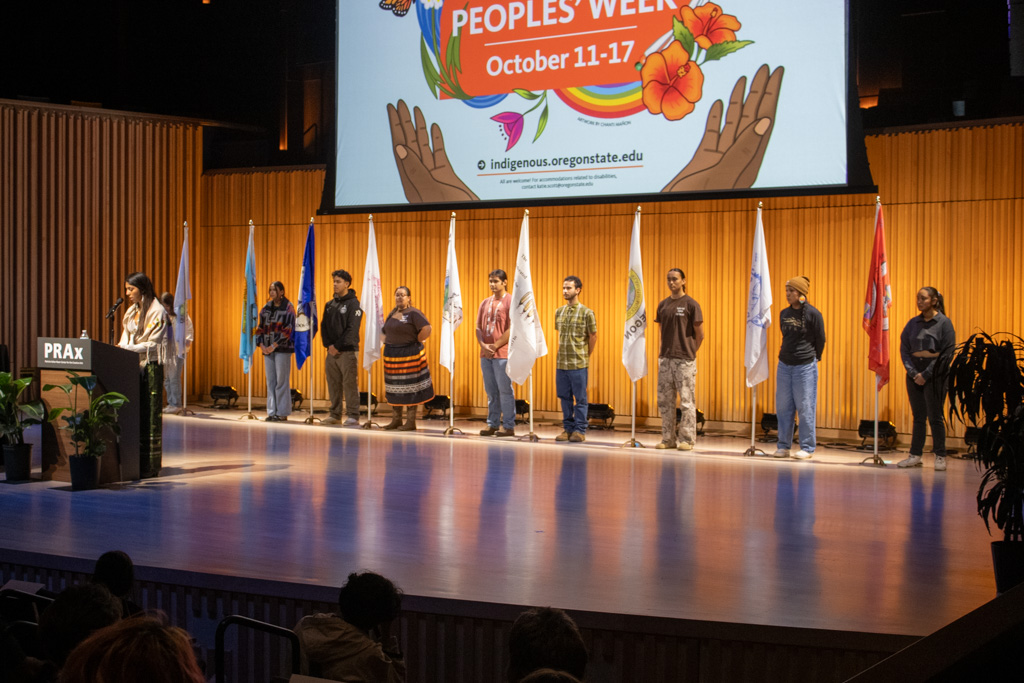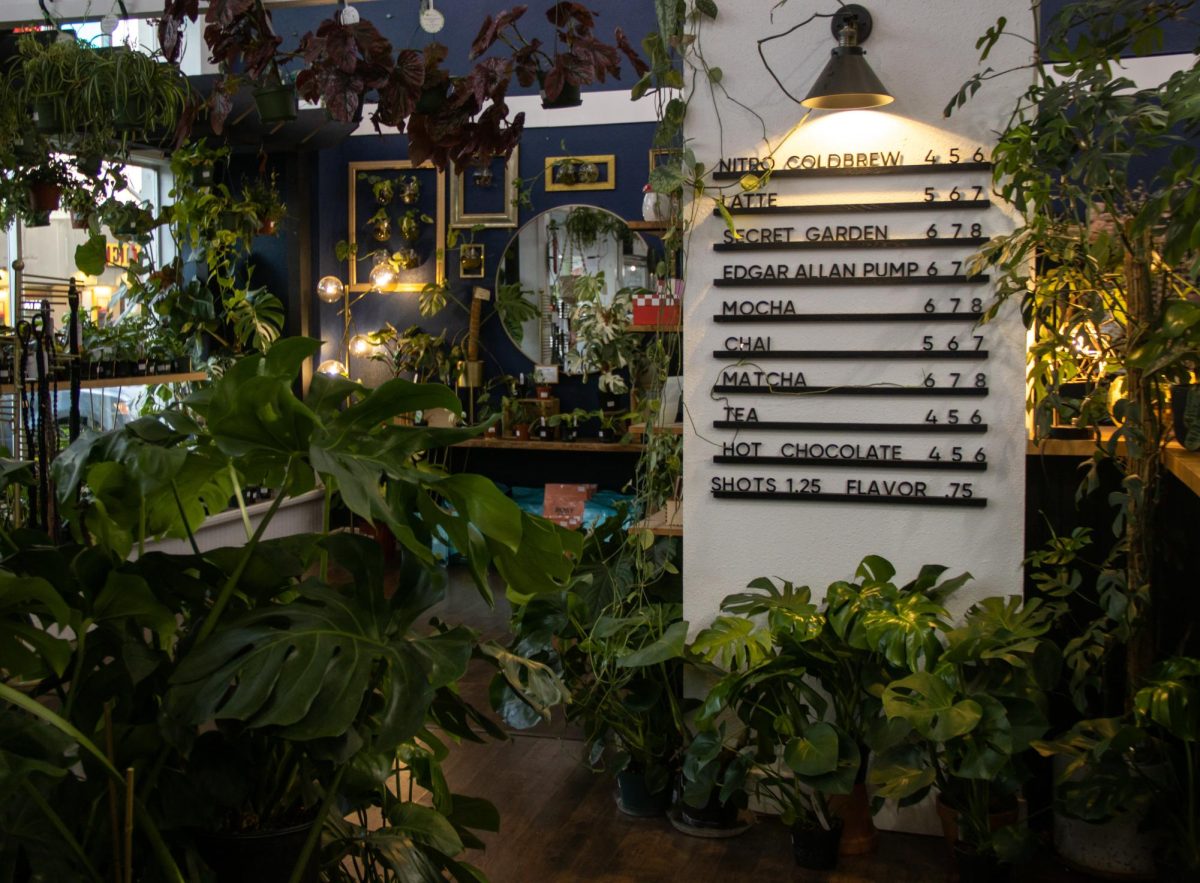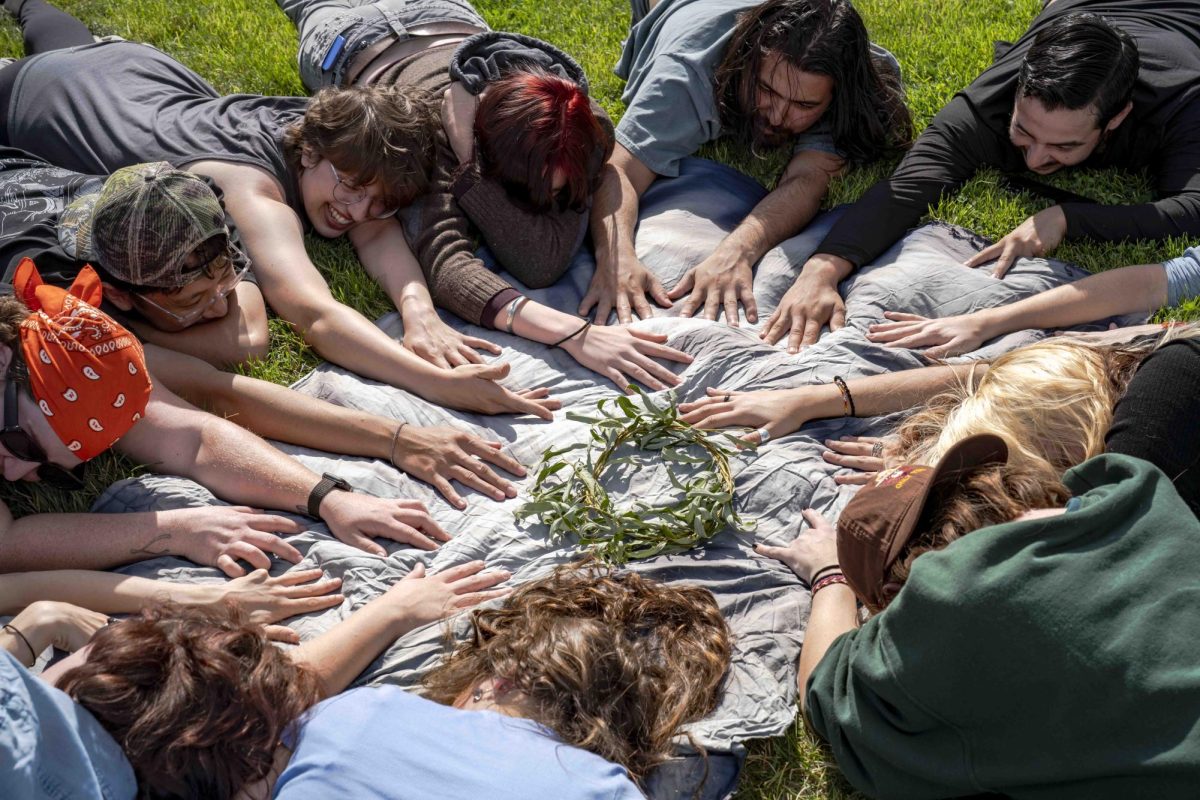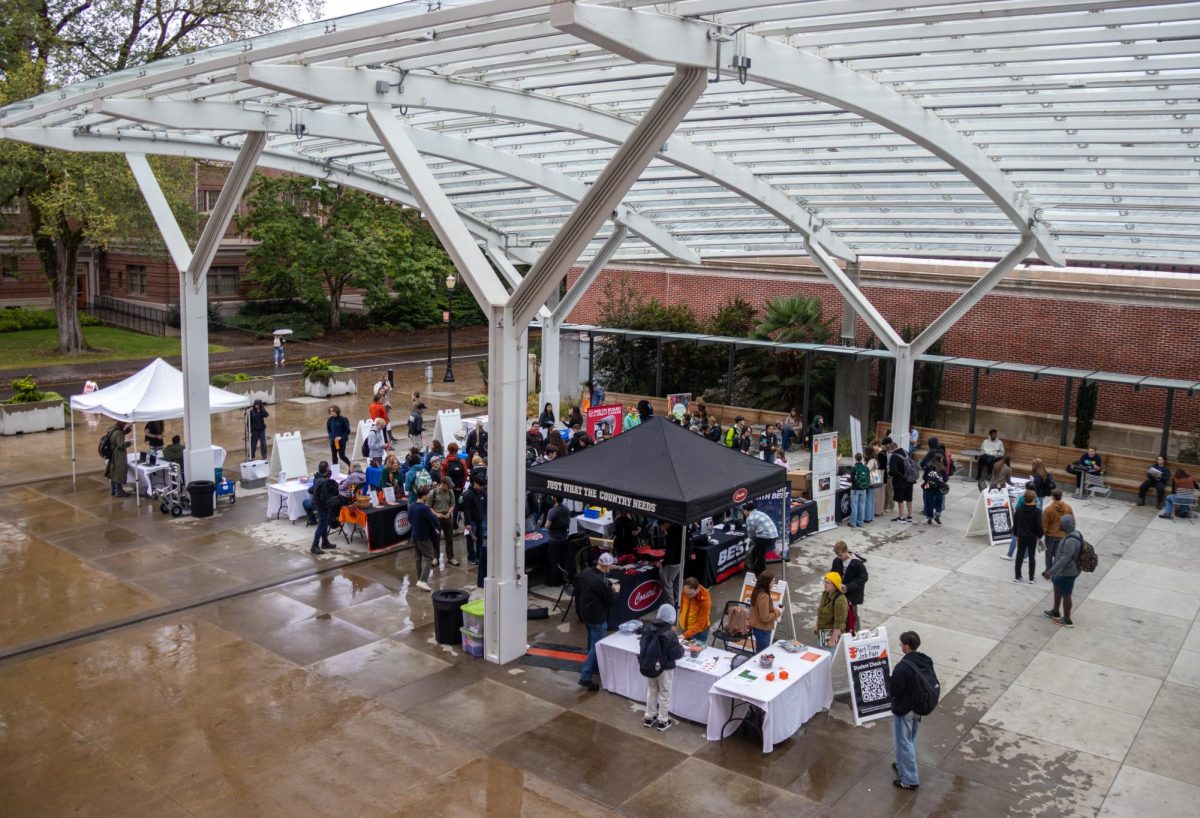It’s a Friday night in Corvallis, Oregon. You and your roommates are going out, you have five weekends left at college until graduation, and it’s time to make the most of it with your friends. You’ve pregamed, gotten ready, ordered the Uber and somehow, after all that, everyone but the person you really wanted to see is showing up at the bars tonight.
You might have had plans to meet up with the guy you’ve been seeing, it’s been three months of low-commitment hangouts and uncertainty between the two of you. Forty-five minutes into your evening, you get a text saying, “Sorry, plans changed,” and then radio silence for the rest of the night.
No one else at the bar catches your attention, the drinks don’t make you feel good anymore, you’ve begun to mope around the bar, your energy has, seemingly, permanently dipped, and your night, along with your roommates’, is ruined.
This may sound like the shortest horror story you’ve ever read, a chilling new variation of: “For sale: baby shoes, never worn.” Alternatively, this could be a fairly common phenomenon for you and your nearest and dearest.
Whether it’s familiar or a completely foreign concept, it’s important to know what it is we’re talking about. What is a situationship? If you can’t fully define it, you’re certainly not alone.
A situationship is described in Vogue as: “A portmanteau of the words ‘situation’ and ‘relationship,’ a ‘situationship’ can describe anything from a poorly defined friends-with-benefits arrangement to an ongoing, unlabeled flirtation to a long-distance texting thing that isn’t quite romantic (but could be?).”
On social media, books, movies and TV shows, situationships or equivalent relationships are portrayed with a nonzero amount of disdain. The person you like is interested, just not interested enough to want to date you. However, I’d like to approach the situation with a little more consideration.
In my opinion, situationships can be exciting and entertaining, there’s initial interest without knowing where it could possibly lead. It’s push and pull, it’s up in the air and you get time to explore connection and your own feelings with a brand new person.

However, it takes maturity to maintain relationships like these, and if you hadn’t noticed, not everyone in our age group contains that level of maturity.
As a writer, I like to romanticize getting to know a person with no clue as to where it could lead. The priority is placed on getting to know a person in the time you have together, and I find something in that to be incredibly touching. Time in this space is limited, and, likely, many of the relationships you form here with time will become less present and relevant in your life.
Your partner or situationship may not be following you to where your job, internship or grad school program is going to end up being. There’s a good chance, with the growth of your prefrontal cortex, you will healthily grow in different directions and become very different people over the course of the next four to five years.
Nothing at this stage in your life is guaranteed — that doesn’t mean these experiences aren’t worth having.
With this in mind, low to no commitment can be anywhere between a tantalizing prospect or your worst nightmare. In 1983, Pat Benatar said, “Love is a battlefield,” and I believe that nowhere is that clearer than in the college dating scene.
The question remains for the many individuals who have deigned to date in college: In a community where everyone seems to be in a different place emotionally and romantically, how can you ever be on the same page?
I am famously a pessimist, particularly when it comes to romantic relationships, so my answer would be that it can seem pretty close to impossible for people at this stage in our lives to truly know what we want and pursue that.
However, my personal experience and opinions on situationships contain little nuance that you haven’t heard or thought of before. Just as varied as the term situationship is, are the amount of students on this campus with opinions on them.
“It is so largely undefined, beside that being the word that’s put to it,” said Belle Hume, a third-year anthropology major. “In terms of whether you see other people, exclusivity, or anything related to that, it’s so largely dependent person-to-person that it can become almost frightening.”
“It’s really hard to navigate it without the boundaries of conventionality, when it comes to relationships,” Hume said.
Conventionality and unconventionality were common themes that popped up in these conversations with students. The unconventionality of situationships is just an aspect of what can make them so difficult to navigate.
Among my friends and in my own experiences, situationships can be incredibly varied. From no commitment to “I just don’t feel like seeing anyone else,” these relationships can manifest in any form or fashion.
With this knowledge, I began to wonder — how do you navigate expectations and understandings of what a situationship is? How do you ever really know what someone wants?
“I think it must be clearly established to be casual, and a situationship has to have boundaries to work,” said Raven Watts, a third-year creative writing major. “A lot of people ignore any boundaries put on a situationship and claim that that’s a label.”
The label in and of itself can mean so much. Time and time again, I’ve seen it used as more of a Band-Aid to cover up the discomfort of not knowing what you and the other person want from one another.
“I’m not a fan of the label, I think that it has given clarity to many, many a college student, but it is essentially a label that means ‘we don’t have a label,’” said Graham Davis, a third-year computer science major.
“I think it’s unproductive to put the label of situationship on something when you could just be not dating yet and eventually work towards it. The people that use the word situationship more often than not, from what I’ve found, use it as a scapegoat because they don’t actually want to be in a relationship, but they want the benefits of one,” Davis said.
Gaining these benefits, whether they may be physical or emotional, without the need to feel committed to the person, is one of the things that draws so many people to these purgatory-type situations. Finding out what the benefits are and how to navigate getting them in the healthiest manner, however, is the hard part.
“An established set of boundaries could help, but mostly I’d say it’s just a negative experience one has to go through,” Watts said. “In both non-monogamous relationships and situationships, they require more communication than a normal relationship.”
These boundaries and communication are vital in maintaining any type of unconventional relationship. Are you seeing other people, and in what capacity? Should people know about us? Do I have to get you anything for Valentine’s Day?
Uncomfortable situations beget uncomfortable questions. To engage in this type of relationship with another person, there must be an open understanding that conversations and communication rooted in discomfort must be had.
Situationships can often start from friendships, and the aimlessness of not knowing what you want from it or where to go with it (or if you should tell the rest of the friend group what’s going on).
As exhilarating as these arrangements or emotions can be, it’s important to remember that the other person is likely experiencing the same uncertainty, that even without a label, it’s a big step to make, and that the friendship between the two of you will likely never be the same again.
“One of the things I’ve prioritized the most is the friendship ‘cause I still enjoy the company of this person, and so I don’t want that to change. So, whatever that looks like in the future is fine by me,” said Bayly Kahle, a third-year fisheries and wildlife major.
Whether it’s a Hinge match, an old friend or someone you meet at the bar when other plans fall through, situationships sometimes feel like an unavoidable, almost necessary evil, in today’s college dating scene.
The important thing to remember in these types of endeavors, is knowing what you want, what you’re comfortable with, and communicating that with the person you’re seeing. Regardless of label or status, we all have so much to learn from one another in love or in texts sent at 3 a.m.
So whether you’re for or against situationships, figure out what it is that you want, and talk about it. As an adult, there isn’t any reason for you not to know what you want and explain that to another person in the clearest way possible. If you want commitment and the long-term, this might not be the thing for you.
I don’t find situationships in and of themselves to be wholly negative or wholly positive. It just takes knowledge of self and the ability to communicate, something I have found lacking on this particular campus. Once you know what you want, which is always a worthwhile endeavor, align yourself with people who want similar things. A central message I’d like to leave you with is simply this — don’t waste people’s time, and don’t put yourself in situations where you know you’ll be hurt.
So, in situationships or Saturday nights, explore what you’re looking for, know your boundaries and communication style, and never let plans falling through with the object of your attraction ruin your night out with the girls.













